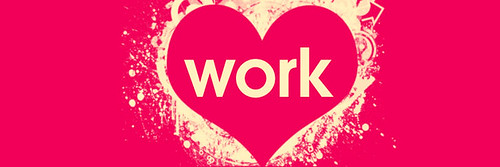The pokey. The slammer. The clink. How many different ways are there to say prison, and where do these words come from? We decided to find out.
Our latest obsession isn’t completely arbitrary. Forty-nine years ago today, Alcatraz closed as a federal penitentiary. Also called the Rock, the island was named for bird that roosted there, the pelican, which in Spanish is, you guessed it, alcatraz.
From the other side of the country came the expression up the river, which, according to the Online Etymology Dictionary, originally referred to the Hudson River and Sing Sing, a maximum security prison in Ossining, New York. Sing Sing was the original name of Ossining, and was derived from the name of the Native American tribe, the Sint Sinck, who sold the area to one Frederick Philipse.
Some prisons were so famous (or in some cases, infamous), their names became common words. The stir in stir-crazy (“distraught or restless from long confinement in or as if in prison”) is a slang term for prison, and comes from Start Newgate, “a former prison in London notorious for its unsanitary conditions and burnt down in riots in 1780.” Meanwhile, Newgate became a verb meaning “to imprison.”
Another synonym for prison, bocardo, originally referred to Bocardo Prison in Oxford, England. Bastille, which comes from an Old French word meaning “fortress, tower, fortified, building,” was “built in Paris in the 14th century and used as a prison in the 17th and 18th centuries,” and now refers to “a jail or prison (especially one that is run in a tyrannical manner).”
But how does one get to prison? You could take a paddy wagon, which may come from Paddy, which originated from “the pet form of the common Irish proper name Patrick (Ir. Padraig),” and became a disparaging term for someone of Irish descent. Paddy wagon was so-called perhaps “because many police officers were Irish” at the time (around 1930). The paddy wagon is also known as a meat wagon, cattle car, or Black Maria.
According to World Wide Words, Black Maria is American in origin, though its exact etymology is unclear. The name may come from a Boston story “about Maria Lee, a large black woman who kept a boarding house in the 1820s with such severity that she became more feared than the police, who called on her to help them catch and restrain criminals,” or from the name of a “famous black racehorse of the period, also named Black Maria.”
Before heading to the big house, prisoners may first be held in a sponging-house, “a victualing-house or tavern where persons arrested for debt were kept by a bailiff for twenty-four hours before being lodged in prison, in order that their friends might have an opportunity of settling the debt.” The sponging-house was so-named “from the extortionate charges made upon prisoners for their accommodation therein,” with sponge meaning “to drain; harass by extortion; squeeze.”
A bridewell was “a house of correction for the confinement of vagrants and disorderly persons,” and became a name “generally given to a prison in connection with a police-station, for the temporary detention of those who have been arrested by the police.” According to the Virtual Linguist, the term bridewell “comes from an old area of London near modern-day Fleet Street, where there was a well dedicated to St Bride,” a patron saint of Ireland, and “is still used by some police forces in the UK, usually as the name of a police station, or of a custody suite.”
A spinning house was “a house of correction, so-called because women of loose character were obliged to spin or to beat hemp as punishment.” Spinster, which originally referred to any person, man or woman, whose occupation was spinning, also meant “a woman of an evil life or character: so called from being forced to spin in the house of correction.” The word is now commonly known as “a woman who has remained single beyond the conventional age for marrying.”
A rogue-house is a house for rogues; a lobspound is a pound for lobs or louts, and was “often applied to the juvenile prison made for a child between the feet of a grown-up person.” Another prison term, hoosegow, was coined in 1911 in the western U.S. probably as a mispronunciation of the Mexican Spanish juzgao, “tribunal, court.” An older term, calaboose (1792), is from the Louisiana French calabouse, which comes from the Spanish calabozo, “dungeon.”
A panopticon was a prison proposed by Jeremy Bentham, “so arranged that the inspector can see each of the prisoners at all times without being seen by them.” On a smaller scale is the Judas, “a small opening in the door or wall of a cell to enable the guards to watch the prisoners.” Also called a judas-hole.
Whatever you call the joint, be sure to keep your nose clean and stay out.



